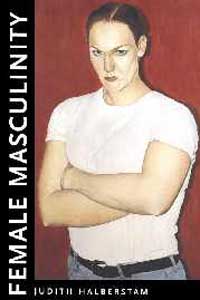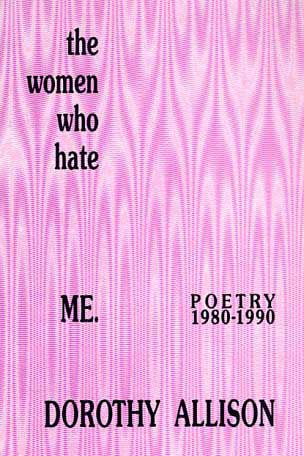Feminism’s creators to gather to define movement’s goals
By Seth SandersNews Office


 Authors Lynn Spigel and Judith Halberstam and poet Dorothy Allison are three of the conference participants. |
Writers, scholars and activists who defined feminism’s past and who are creating its future will come together Saturday, Feb. 28, for a conference, Back to the Future: Generations of Feminism, to rethink the history and goals of the women’s movement. The conference will be sponsored by the University’s Center for Gender Studies.
Kate Millett, one of the “foremothers” of feminist criticism and cultural politics, will head up a multigenerational slate of activists, creative artists, scholars and theorists who have, over the last 30 years, made major contributions to feminism in all of its guises.
Conference co-organizer Deborah Nelson, Associate Professor in English Language & Literature, said, “We have invited speakers at different stages in their careers as feminist writers, scholars and activists and have asked them to reflect on the past and especially the future of feminism. Our goal is to produce a moment of reflection both by listening to our distinguished speakers and by generating discussion between panelists and audience members about the possible future of feminism.”
Speakers will talk about what feminism’s successes have meant and respond to such questions as: Did you once imagine a utopian future that you have since revised, refined or rejected? What inspired you to ask the questions that led to becoming feminist? What happens when a work becomes a “classic” in feminist thought and politics?
Co-organizer Sandra Macpherson, Assistant Professor in English Language & Literature, added, “We want to confront how feminism as an academic discipline and an economic and political issue has changed. Has the coalition aspect of contemporary feminism made it fundamentally different? Does our view of globalization need to be re-infused with feminism? Each speaker will contribute a unique perspective on where we have come and where we ought to be going.”
The conference panelists are: Dorothy Allison, Sabrina Craig, Judith Halberstam, Sharon Holland, Nancy Miller, Kate Millet, Aihwa Ong, Lynn Spigel, Gayatri Spivak and Michele Wallace.
Allison, a longtime feminist and pro-sex activist, has published a wide range of literature including poetry, short stories and essays, and has devoted herself to feminist causes, particularly on behalf of abused women and new writers.
Craig, program director of Women in the Director’s Chair—the oldest and longest-running (1997-2003) women’s film and video festival in the United States—has worked on many independent films and has been the curator of film exhibitions at such places as the Walker Museum of Contemporary Art.
Halberstam, professor of literature at the University of California at San Diego and author of Female Masculinity, is a prominent theorist of gender, sexuality and transgender. In addition to a book on gothic fiction, she also has co-edited Posthuman Bodies and co-authored The Drag King Book.
Holland, associate professor of African American studies and English at the University of Illinois at Chicago, is one in a new generation of scholars whose work intersects race, gender and sexuality. She is the author of Raising the Dead: Readings of Death and (Black) Subjectivity.
A feminist literary critic, Miller is the author of The Heroines Text and editor of The Poetics of Gender. She is a distinguished professor at the City University of New York Graduate Center. Since the late 1980s, Miller has turned her attention to autobiographical writing, producing But Enough about Me: Why We Read Other People’s Lives.
Millett is the author of the landmark Sexual Politics (1970) and has been described as “the foremother of feminist literary criticism and cultural politics.” An activist and writer, Millett also has published The Prostitution Papers and the three autobiographical works, Flying, Sita and The Loony Bin Trip.
A MacArthur Foundation fellowship winner, Ong is a professor of anthropology at the University of California-Berkeley. Her books, Spirits of Resistance and Capitalist Discipline and Flexible Citizenship, explore the issues of her research: gender, labor, capital and liberalism in Southeast Asia, China and the United States.
Spigel’s work has been described as “a new kind of media history, combining feminist scholarship, the history of architecture and the interpretation of television programming.” A Northwestern University communications professor, Spigel is the author of Make Room for TV and Welcome to the Dreamhouse. She also is co-editor of The Revolution Wasn’t Televised and the journal Camera Obscura.
Spivak, a professor at Columbia University, celebrates the 20th anniversary of her essay, “Can the Subaltern Speak?” This work helped initiate postcolonial studies, a discipline she invented along with Edward Said and Homi Bhabha, a former University professor. Spivak has since worked to develop, criticize and challenge the study of culture worldwide in such books as Critique of Postcolonial Reason and Death of a Discipline.
Wallace’s defining work of the 1970s, Black Macho and the Myth of the Superwoman, has generated interest and controversy since its publication. She is a professor at the City University of New York Graduate Center. Her most recent book, Dark Designs and Visual Culture, is forthcoming.
The conference will be held in the Max Palevsky Theater in Ida Noyes Hall, 1212 E. 59th St. People with disabilities who may require assistance may contact the Center for Gender Studies at (773) 702-9936. Further conference information is available on the Web at http://humanities.uchicago.edu/orgs/cgs/GFConference.htm or by contacting Gina Olson at (773) 702-9936 or (773) 834-2000 (fax) or golson@uchicago.edu.
![[Chronicle]](/images/sidebar_header_oct06.gif)